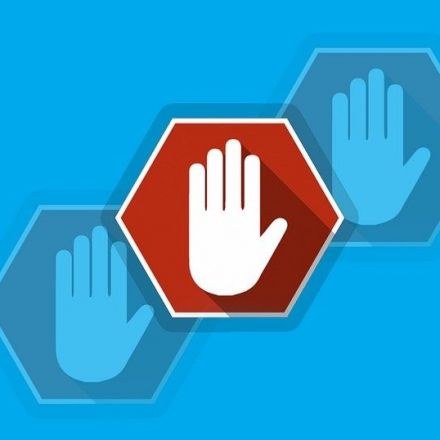Thank you
Your email has been added to our waiting list and we will send an invite to you as soon as possible. Thank you for your patience.
In the meantime, if you happen to run a blog, our newly launched Blog Enhancement Suite can utilize the immense power of community to help you get more audience, engagement, content, and revenue with your own embeddable community! It will breathe new life into your blog and can automate many of the tedious tasks that come with the territory, so you can focus more on what matters most... writing.
Help spread the word about Snapzu:
Let others know about Snapzu by tweeting about us. We appreciate every mention!
Tweet it!





























Join the Discussion
This article doesn't really dwell on the bad behaviour that advertisers use on websites. Tracking, fingerprinting, malware injections to name a few. Nothing justifies that sort of behaviour. Clearly advertisers have no problems publishing their junk for free.
We don't have to accept moral/emotional blackmail from publishers. We are not responsible for their business model. If a publisher wants to stop me reading a webpage because I'm not prepared to compromise my machine to read it, I'm happy to not read it. Publishers can always use a paywall but then they are not part of the conversation that is the internet.
I agree and I wish I could upvote this 500 times. My browser is not your personal billboard and your ability to demand I pay attention to your bullying me to buy stuff I don't want/need stops at my browser.
I have an ad-blocker, plus my browser is well trained in not accepting trackers and other nefarious ways to obtain my personal data, including my browsing data. With those two things (ad-blocker, well trained browser) my internet is way faster than with all the sales, pop-ups-and-unders, unrequested scripts, which is, all and all, one of my biggest things with a network in 2020: speed.
My browser, a lean and mean Firefox, uses after four hours of internetbrowsing somewhat 1.5 GB of RAM. When I was still using Facebook (which is, in essence, one big advertisement) that went up to about 2.3 GB after a few hours. I actually do not know exactly how much it is with my ad-blocker turned off, but eventhough I use Linux, some scripts are just bad motherfuckers to have on your machine in some cache-folder. So, there's another good moral stance: the placement of unwanted software on my, normally very safe, machine. Which is, to my opinion, a criminal offence, comparable with sabotage or an attempt thereof.
Businesses that need to be intrusive to sell their products, are not the ones I want to do business with in the first place. That kind of desperation stinks of bad quality products. Ads are okay in a way, but when someone doesn't need them, so be it.
I understand websites need to make money, or at least the people running them do. But just check The Guardian for once: no ads, no trackers and other acts of criminal behaviour and still a well earning newspaper. Just ask politely at the end of every article if the reader is interested in sponsoring or taking a membership. That's it. And if the chance is there that this method doesn't work on your site, well, I don't want to break it to you, but there are billions of people on the web and they all have bright ideas, just like you. Even with annoying ads: nobody cares. So there's a hint: make a better product or try another job.
I 100% agree with what the previous commentors put. My attitude is "You have the right to put whatever ads you want on your website, just as I have the right to use an ad-blocker."
In particular, I think this is where online newspaper journalism went downhill. The vast majority of these had very spammy annoying ads, which was exactly the opposite of what their clientele wanted. If you are the type of person looking to get a well-researched piece of newsworthy journalism, you are not going to be the type of person who is going to tolerate spammy ads. Such ads are pretty much the EXACT OPPOSITE of what the person was looking for when they browsed that newspaper site in the first place. Then the newspapers complain they can't make money. Well, they shot themselves in the foot. I agree with Maternitus that a notable exception to this behavior is The Guardian, which asks for donations politely and in a non-intrusive manner.
Going back to talking about sites in general (not just newspapers), I also agree with what everyone else put which was that if publishers can't make money due to ad-blocker use, then they need to have a different business model. That's the publisher's problem, not the consumer's.
So true...Add to that,a lot of people don't use ad blockers for various reasons. But yep,they brought this house of cards down on themselves years ago,but try to blame us for fighting back.